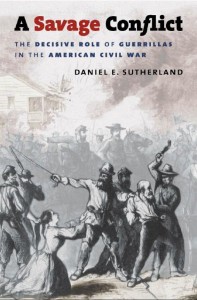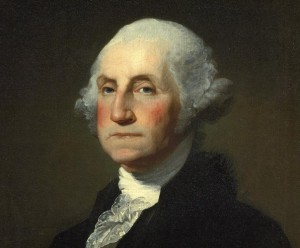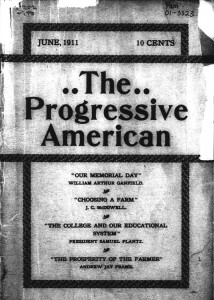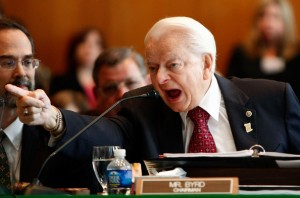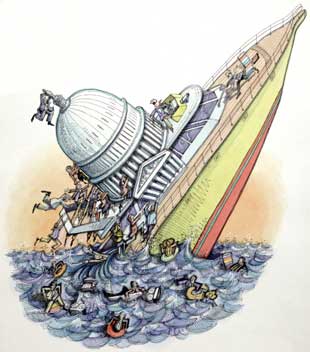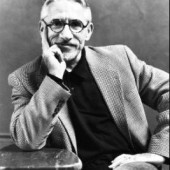 Kenneth C. Davis, A Nation Rising: Untold Tales of Flawed Founders, Fallen Heroes, and Forgotten Fighters from America’s Hidden History. HarperCollins, 2010. ISBN: 978-0-06-111820-3.
Kenneth C. Davis, A Nation Rising: Untold Tales of Flawed Founders, Fallen Heroes, and Forgotten Fighters from America’s Hidden History. HarperCollins, 2010. ISBN: 978-0-06-111820-3.
Mr. Davis attempted to cover the first 50 years of the 19th century by following the narratives of 6 events: Burr’s trial, Weatherford’s War, the Madison Mutiny, Dade’s promise, Morse’s code and Jesse’s journey. Mr. Davis sought to provide “a portal into the times” in which each event unfolded. These are what he calls “overlooked.”
Mr. Davis has not written a history book in as much as he has a political op-ed piece. Davis starts off with President Obama’s election and throughout the book brings up politics of today and compares it with the past; and he takes events from the past and compares them with today. For example, Davis compared several events from American history with the terrorists attacks of 9/11. Here are those examples: William Weatherford’s “massacre” (Mr. Davis wording) at Fort Mims when Creek Indians stormed the fort and killed over 500 (265 armed militia) but spared the blacks so they could enslave them. Mr. Davis also compares a Seminole Indian attack in Florida against American soldiers as another 9/11 like event. I’m sorry, but how attacks by soldiers (warriors) against soldiers (and yes some settlers who understood the danger) is comparable to a radical Islamic terrorist attack against unarmed civilians whose only crime was going to work compares is beyond me!?
 In his “Introduction,” Mr. Davis correctly points out that back in 1776 there were “many founders” who would have “been perfectly at home owning Barack Obama, his wife Michelle, and their two little girls and perhaps selling all or some…” Historically inaccurate? No, the straw man here is easily disposed. Well done Mr. Davis! Of course, Davis fails to point out that some founders did not own slaves: John Adams, Samuel Adams, Alexander Hamilton, and Thomas Paine. But the point here is Davis’s agenda, it’s “gotcha” history with his own political twist. As if the man is telling us anything new.
In his “Introduction,” Mr. Davis correctly points out that back in 1776 there were “many founders” who would have “been perfectly at home owning Barack Obama, his wife Michelle, and their two little girls and perhaps selling all or some…” Historically inaccurate? No, the straw man here is easily disposed. Well done Mr. Davis! Of course, Davis fails to point out that some founders did not own slaves: John Adams, Samuel Adams, Alexander Hamilton, and Thomas Paine. But the point here is Davis’s agenda, it’s “gotcha” history with his own political twist. As if the man is telling us anything new.
Now he does actually get into some interesting stuff with his 6 narratives only his constant injection of politics into his narrative ruined it; at least for me.
Davis then reveals the shocker that Washington (who freed his slaves upon his death) and Jefferson (who could not as he technically no longer owned them upon his death due to massive debts) would surely have been two of those who would have had no problem with the above scenario and would have even taken part. I don’t know how often Washington sold his slaves or if he ever broke up families (and the same goes for Jefferson), but Mr. Davis better know. Does Mr. Davis know that by the time the Revolution and Constitutional Convention are completed and the nation holds its first elections, the fact that anyone was voting on such a massive scale was unprecedented in world history. Remember, most of the world was “ruled” or lived in anarchy.
Mr. Davis then wraps it up by pointing out the hypocrisy of the founding when Obama himself, had he lived back in the day, would have only been “three-fifths of a man” when the counting of population took place for representation in Congress. Never mind that all the racists Southerners wanted all blacks to be counted as an entire human being as it would have benefited them.
 Another and final example I will provide, every time (maybe I missed one or two when he didn’t) when Davis compares an event that was bad within something from modern history he does so with only Republicans. In his discussion on “presidential vendettas” he brings up Nixon and Bush, never mind FDR who had political opponents jailed.
Another and final example I will provide, every time (maybe I missed one or two when he didn’t) when Davis compares an event that was bad within something from modern history he does so with only Republicans. In his discussion on “presidential vendettas” he brings up Nixon and Bush, never mind FDR who had political opponents jailed.
The book is nothing more than a political expression of Mr. Davis and a good example of “presentisim” and activism that has no place in historical scholarship.
If you want a good book on this time period, take a look at David Walker Howe’s What Hath God Wrought: The Transformation of America, 1815-1848.
